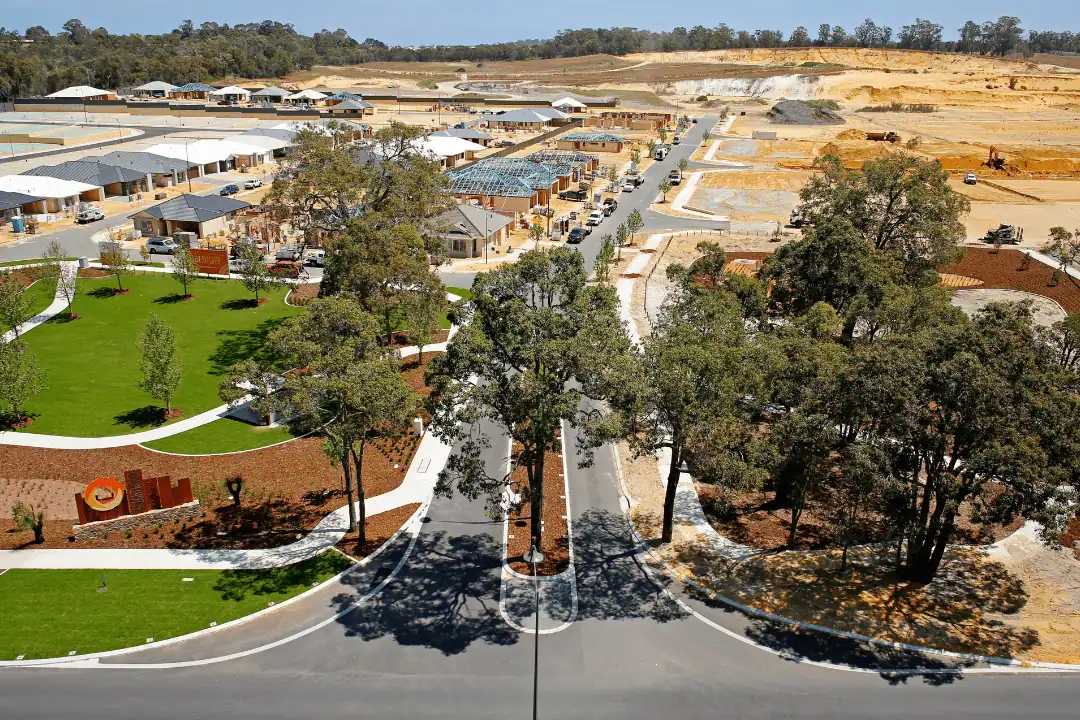In the realm of real estate development, the quest for suitable land forms the bedrock of any successful project. Identifying the perfect piece of land can set the stage for profitable ventures, whether it’s building residential communities, commercial spaces, or mixed-use developments. While traditional methods of scouting land can be time-consuming and challenging, the Multiple Listing Service (MLS) offers a robust solution, streamlining the search process and providing vital insights into available properties. This article delves into the strategic use of MLS to find land for development projects, highlighting its benefits, features, and best practices.
The Importance of Land in Real Estate Development
Land is a finite resource, making its careful selection crucial for real estate developers aiming to maximize their investment potential. The choice of location, size, and zoning regulations can significantly impact the feasibility and profitability of a project. Therefore, accessing accurate and comprehensive information is key to making informed decisions.
Traditionally, developers relied on local knowledge, networking, and direct inquiries to identify potential sites. These methods, while useful, often result in incomplete information and limited options. In contrast, MLS offers a centralized platform where developers can access extensive property data, enhancing their ability to discover and evaluate land opportunities.
Leveraging MLS for Land Search
MLS serves as a powerful tool in the arsenal of developers. By providing detailed listings of available properties, it enables developers to efficiently explore various options that align with project goals. The platform includes crucial details such as acreage, zoning classifications, and pricing, allowing developers to tailor searches according to specific criteria.
For developers seeking land, the customization features of MLS prove invaluable. By defining requirements such as location, lot size, and allowable land use, developers can narrow down their search to the most relevant listings. This precision not only saves time but also ensures that the opportunities considered align with project specifications.

Analyzing Property Data for Informed Decisions
Beyond basic property information, MLS offers a wealth of data that aids in evaluating potential development sites. Developers can access details on land topography, environmental considerations, and utility availability. This information is crucial for assessing the feasibility of various projects and anticipating potential challenges.
Furthermore, MLS provides insights into historical property data, including previous sales, pricing trends, and comparable properties in the area. By analyzing this data, developers can gauge market dynamics and predict future land value. These insights facilitate strategic decision-making, allowing developers to identify undervalued properties or emerging markets.
Navigating Zoning and Regulatory Considerations
One of the primary challenges in land development is navigating zoning laws and regulatory requirements. Zoning dictates the allowable use of land, influencing the type of projects that can be pursued. MLS aids developers in understanding these regulations by providing information on current zoning classifications and potential rezoning opportunities.
Collaborating with zoning experts and local authorities can further enhance understanding and compliance. MLS, combined with expert advice, equips developers with the knowledge needed to approach development projects with confidence and accuracy.
Developers should also consider future zoning changes and infrastructure plans that might affect land value and project feasibility. Staying informed about municipal plans and legislative changes ensures alignment with long-term development goals.
Building Relationships with Real Estate Professionals
While MLS is an incredibly useful tool, developing relationships with real estate professionals can exponentially increase its value. Real estate agents and brokers offer market expertise, insights, and connections that can uncover opportunities not immediately visible on the MLS. These professionals can provide local insights, introduce potential partnerships, and offer negotiation expertise.
Networking within local real estate communities allows developers to access off-market properties and gain firsthand knowledge of upcoming areas. Establishing a strong network of industry professionals enhances the range and quality of opportunities available through MLS.
Mitigating Risks and Challenges
Despite the advantages of MLS, developers must adopt a proactive approach to mitigate risks associated with land acquisition. Comprehensive due diligence, including site visits, environmental assessments, and legal reviews, is essential to uncover potential issues that may not be apparent in MLS listings.
Financial analysis also plays a crucial role in risk management. Developers should conduct thorough cost-benefit analyses to understand potential returns and financial viability. By analyzing factors such as construction costs, expected market demand, and economic trends, developers can make informed decisions and reduce financial uncertainties.
The Evolution of Technological Integration
As technology continues to evolve, MLS platforms are increasingly incorporating advanced features that enhance land searches and project planning. Geographic Information System (GIS) technology, for instance, provides detailed mapping and spatial analysis, allowing developers to visualize land characteristics and assess development potential more accurately.
Artificial intelligence and data analytics are also being integrated into MLS platforms, offering predictive insights into market trends and property valuations. These technologies empower developers to anticipate changes, adapt strategies, and remain competitive in a rapidly evolving market.
By embracing these advancements, developers can enhance their decision-making processes and capitalize on opportunities more effectively.

Strategic Land Selection through MLS
The strategic use of MLS in identifying and evaluating land for development projects marks a significant advancement in real estate practices. By leveraging the extensive database and analytical capabilities of MLS, developers gain access to a wealth of information that informs and enhances their decision-making process.
While MLS offers comprehensive data and insights, its true potential is realized when combined with expert guidance, robust networking, and proactive due diligence. Developers who embrace these strategies will find themselves well-equipped to navigate the complexities of land acquisition, paving the way for successful and profitable development projects.
In an industry where precision and agility are paramount, MLS serves as a critical tool, unlocking opportunities and fostering innovation in real estate development. By utilizing MLS effectively, developers can ensure that their projects not only meet but exceed their strategic goals, contributing to a thriving and dynamic real estate landscape.
Frequently Asked Questions
Q1: What is MLS, and how does it help real estate developers find land?
A: The Multiple Listing Service (MLS) is a centralized database platform that provides comprehensive property listings with detailed information, including acreage, zoning classifications, pricing, and property history. It helps developers streamline their land search process by offering customizable search criteria and extensive property data in one location.
Q2: What specific information can developers find about land on MLS platforms?
A: MLS provides crucial details such as lot size, zoning classifications, pricing, land topography, environmental considerations, utility availability, historical sales data, pricing trends, and comparable properties. This comprehensive data helps developers assess project feasibility and make informed decisions.
Q3: How can developers use MLS to navigate zoning and regulatory requirements?
A: MLS provides information on current zoning classifications and potential rezoning opportunities for listed properties. Developers can filter searches based on zoning requirements and access regulatory information that helps determine what types of projects are permissible on specific parcels.
Q4: Why is it important to work with real estate professionals when using MLS?
A: Real estate professionals offer market expertise, local insights, and connections that can uncover off-market opportunities not visible on the MLS. They provide negotiation expertise, introduce potential partnerships, and offer firsthand knowledge of emerging areas and market dynamics.
Q5: What are the main risks developers should consider when using MLS for land acquisition?
A: Key risks include incomplete property information, potential environmental issues, zoning restrictions, and market volatility. Developers should conduct comprehensive due diligence, including site visits, environmental assessments, legal reviews, and thorough financial analysis, to mitigate these risks.
Q6: How is technology improving MLS platforms for land development searches?
A: Modern MLS platforms are integrating Geographic Information System (GIS) technology for detailed mapping, artificial intelligence for predictive market insights, and advanced data analytics for property valuations. These technologies provide better visualization tools and predictive capabilities for developers.
Q7: What should developers look for when analyzing historical property data on MLS?
A: Developers should examine previous sales prices, pricing trends over time, days on market, comparable property sales in the area, and market appreciation rates. This data helps gauge market dynamics, identify undervalued properties, and predict future land values.
Q8: How can developers maximize their ROI when using MLS for land searches?
A: Developers can maximize ROI by using precise search criteria, analyzing comprehensive property data, building relationships with real estate professionals, conducting thorough due diligence, staying informed about zoning changes, and leveraging technological tools for better decision-making and market analysis.










